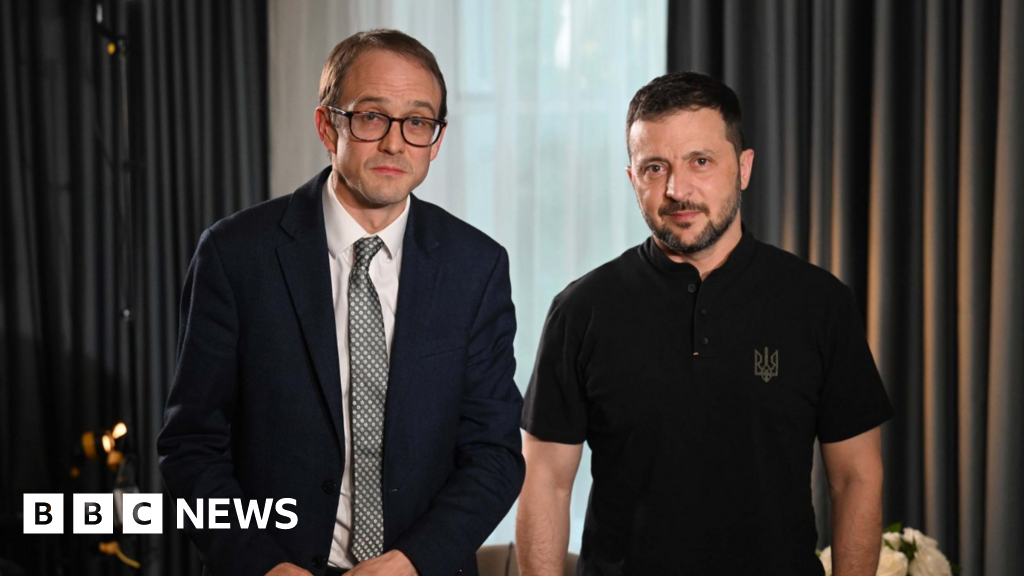I get to interview a lot of politicians.
And, full disclosure: I like politicians.
It is my job to scrutinise them on your behalf and ask the questions you need answers to.
But I think seeking public office is a noble thing to do.
Many politicians could have a quieter, easier life – and in many cases a more lucrative one too – if they decided to do something else for a living.
But functioning democracies require people willing to enter public life and take with it the brickbats that follow.
Every so often, I have the privilege of meeting a political figure who stands out.
Volodymyr Zelensky stands out, among the politicians I talk to at least, because he is a wartime leader.
He is the personification of a nation under siege, in a deadly conflict that pits – albeit indirectly – the values, instincts and interests of western democracies against Russia.
The former television comic and actor, who finds himself not just as his country’s president, but president at a time of ultimate jeopardy for his people – and so finds himself one of the most recognisable faces on earth.
What a privilege, then, for me to be invited to ask him some questions on your behalf during his visit to the UK.
He is a man Moscow would like to see dead, so you won’t be surprised that the security that surrounds him is muscular.
I was to see it again, one on one, in my conversation with him now.
He speaks very good English, but in longer interviews (we spoke for around 40 minutes) he often answers in Ukrainian, particularly if he feels it important to be precise in his choice of language.
So we spoke through interpreters, apart from the moments when he relished switching into English.
I challenged him on the corruption that seems embedded if not endemic at senior levels of Ukrainian society.
He said the fact we knew about it – and people had lost their jobs because of it – showed it was something Kyiv took seriously.
He was sanguine about the prospect of getting to know yet another British prime minister – Sir Keir Starmer is his fourth in the two and a half years since Russia’s full-scale invasion of Ukraine.
Sanguine because, he said, the UK had remained steadfast and consistent in its support for him, despite the domestic political turbulence.
A week ago Sir Keir – on his first overseas visit as prime minister – had been in the room at the Nato summit in Washington when US President Joe Biden had managed to muddle up President Zelensky with President Putin of all people, with the Ukrainian president standing just yards away.
I was just down the corridor waiting for Sir Keir’s news conference, in which President Biden’s jaw-dropping gaffe dominated. The prime minister, just like Ukraine’s leader, sought to play it down as just one of those things.
But President Zelensky’s take on Donald Trump’s outlook on Ukraine was more spiky – and in English.
He also acknowledged that a return of all Ukrainian land was not necessarily a pre-condition for the fighting to end, as far as he saw it.
“It doesn’t mean that all territories are won back by force,” he said. Let’s see what reaction those remarks provoke.
For now the war rages on, tens of thousands of lives lost, millions of people displaced, billions of pounds spent.
“The time to stand up for freedom and democracy is now and the place is Ukraine,” Nato Secretary General Jens Stoltenberg had told me earlier.
A message for ears in Moscow, Washington and beyond as the war rages on – and Volodomyr Zelensky continues to make his case for your support to win it.
Source link : https://www.bbc.com/news/articles/clmy1nkm51jo.amp
Author :
Publish date : 2024-07-19 20:41:24
Copyright for syndicated content belongs to the linked Source.
